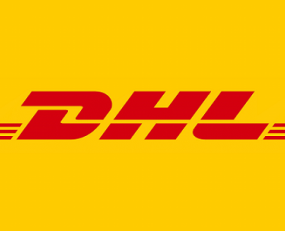
Deutsche Post DHL says that it is coping reasonably well with the COVID-19 crisis. In a statement issued yesterday, CEO Frank Appel commented that “our company has shown a very good development in the first quarter, despite the global challenges. We are operating profitably which can currently not be taken for granted”. The main purpose of the statement seems to be to withdraw the earnings guidance for 2020 however it stuck by its “mid-term targets of at least €5.3bn for 2022” for its Earnings Before Interest and Tax (EBIT).
What it called “Preliminary Group EBIT” for first quarter 2020 was €590m with “operating profit” for the same period being €1bn, although this may be an ‘adjusted’ figure. DP-DHL has estimated that the cost of the pandemic in the first quarter was €200m however the termination of the ‘StreetScooter’ project would be greater at €230m.
In the statement, the company broke out the performance of its constituent businesses.
The ‘Post & Parcel Germany’ division is being pulled in two directions. The parcel business is booming, driven by e-retailing. Promotional mail also seems to be doing well. In contrast, traditional mail has been hit hard. The whole division saw an EBIT for the quarter of €330m.
The DHL Express business has also seen an interesting first-half. Heavily exposed to China the company made the interesting if rather garbled comment that; “the impact on the global business and on the result of DHL Express follow the spread of the pandemic. After the business in China was able to recover noticeably in March, the business in Europe and North America is now showing the same development that the business saw in China in February”. DHL Express went on to observe that “Owning an air cargo fleet has proven to be an important factor in order to be at all able to offer customers urgent transports”. Presumably, this in-house fleet was quite profitable. The pandemic driven costs for the division are estimated to be €90m, with EBIT hitting €390m.
The Global Forwarding, Freight business might have been expected to suffer more than Express, however, despite a “strong decline” in volumes and an “even stronger cuts especially in air freight markets capacity” EBIT was still positive at €70m in the first quarter. Pandemic related costs are estimated to be €30m.
At the Supply Chain contract logistics business demand was also volatile. Automotive and clothing retail may have crashed but grocery retailing and healthcare saw explosive growth. The cost was €30m with the division seeing a positive EBIT of €100m for the quarter.
Strangely, the division of DP-DHL that showed the most distress was the specialist e-retail ‘eCommerce Solutions’. The effect on ‘business-to-business’ demand in market such as Spain and India was too great for the higher demand in ‘business-to-consumer’ leading to a €10m fall in profits with an EBIT of just €10m for the quarter.
Although lacking in detail and not audited, this report describes a DP-DHL of remarkable strength. Of course, the second quarter may be more painful in its core markets of Europe and North America none-the-less, the Group is hardly on the brink of collapse. This contrasts with the condition of say the airline sector or container shipping. This may augur well for the prospects of DP-DHL in the medium-term, offering the potential to gain both market share and to possibly expand by acquisition. It also suggests that DP-DHL has adapted to the 21st century better than some other parts of the logistics sector.